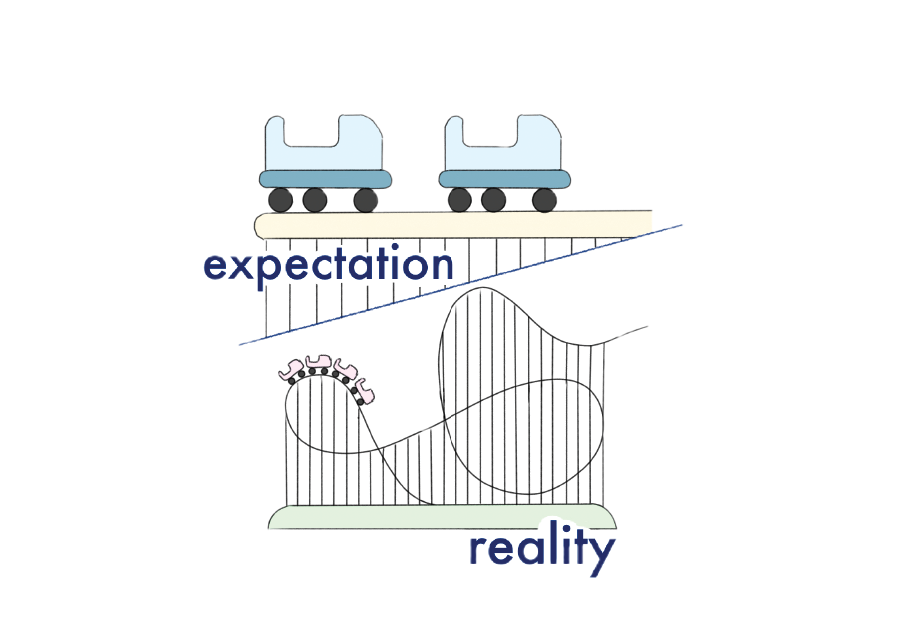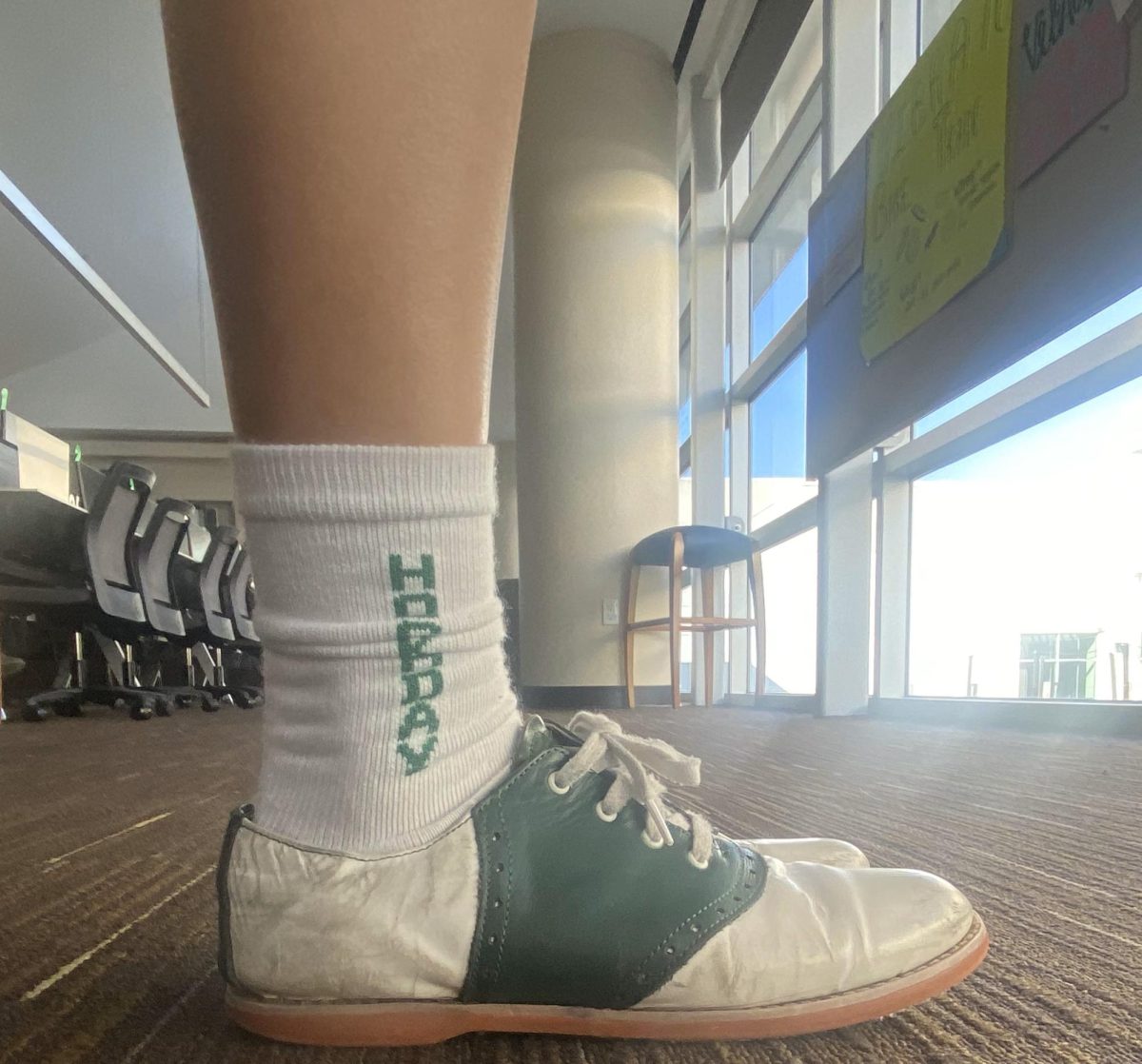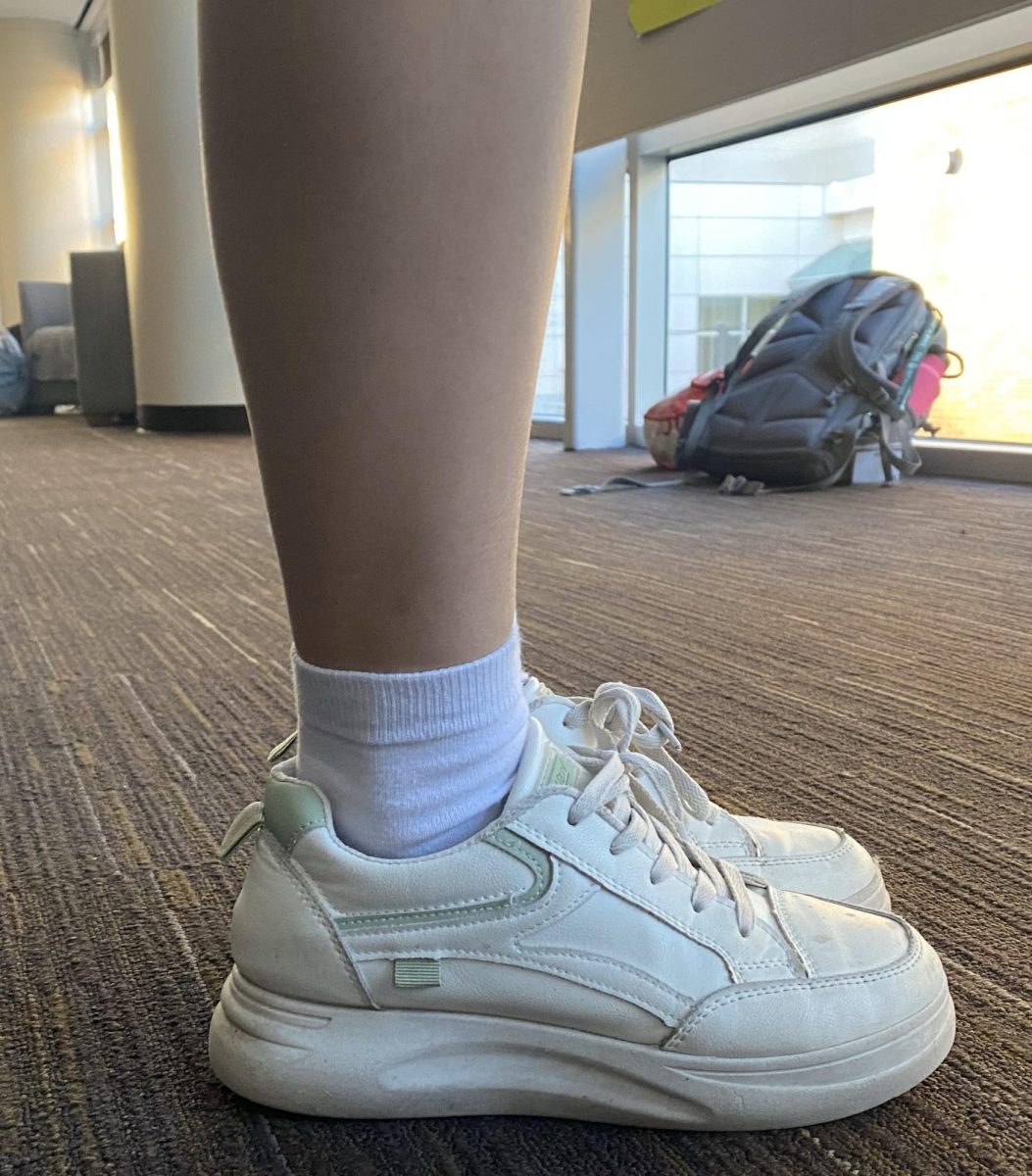PRO-ALEXA
She’s not a friend, she’s not your sister, she’s not even a person. Yet she lives in your living room and you talk to her frequently. She can recite the recipe for vanilla cupcakes while simultaneously setting a timer for 20 minutes. Mothers everywhere envy her multi-tasking skills.
Meet Alexa, the voice behind the Amazon Echo, a “smart speaker” that allows you to play music, get information, send text messages and much more. From playing a favorite Spotify playlist to reading “The Canterbury Tales” aloud, Echo device users have the power to program her to complete specific tasks with the use of voice commands.
I have always been awestruck by technology. I have never been able to take apart and reconstruct a computer, and at least once a month I have difficulty connecting to the Hockaday printers. But when Siri came out in 2014, I spent hours talking to her, encouraging my mom’s iPhone 4 to tell me jokes and give me nicknames.
Alexa is Siri’s better, brighter, more capable counterpart. An embarrassing amount of times, I have lost my phone within my house. I bolted from room to room, forcing Alexa to call my phone as my socks slipped around on the hardwood floors. Without the monotone voice that cheats on me daily with thousands of strangers around the world, I would have gone through at least 20 phones in 2018 alone.
Alexa also serves as an extra layer of safety in your home. Those worried about endangering themselves while alone don’t need a Life Alert button to call for help. They simply have to beckon Alexa’s presence with the three words: “Alexa, call 911.” Her hearing range expands wide enough that someone 30 feet away could yell for help, and within seconds they would be on the phone with the police.
According to CNN, an Arkansas man was accused of killing his friend in 2015. The victim mysteriously drowned in a hot tub, and Alexa’s microphone was able to record all of the action. The prosecutor used recordings from the defendant’s Echo in court as evidence.
Alexa saved yet another life, calling emergency personnel just in time to save a woman being abused by her partner. Cued by the violent screaming between the two, Alexa understood their argument and called 911. If the police had arrived 10 minutes later, the woman would have been knocked unconscious.
I think that the fear surrounding the presence of Alexa, and technology as a whole in our modern world, is ludicrous. Yes, it has the capacity to function independently from human control. That doesn’t mean that we are fated to the lifestyle in “WALL-E”
If you cover up your laptop webcam with tape, or shriek when Zara ads pop up on your screen—right after you just added 3 skirts to your cart—then Alexa is the least of your worries. Remember that Alexa is simply a program that can be manipulated or imitated by anyone with or without a technology background. She is not trying to take over your life; she is only a speaker.
Shea Duffy, Sports + Health Editor.
CON-ALEXA
When one thinks of a virtual assistant, many might recall J.A.R.V.I.S, Tony Stark’s professional yet intelligent “butler” who ended up being the plot-turner of the film; others might consider the video game series Halo, in which there is a digital replication of Dr. Catherine Halsey named Cortana who assists Master Chief and saves the human race.
Despite fictional works frequently exaggerating the power of technology, these virtual assistants are depicted as having one common characteristic: the obligation to avoid human-made mistakes.
A virtual assistant is intended to aid humans to make their life easier and more efficient. Mostly known for its ability to assist us with our daily life chores, the Amazon Alexa has been extensively used and promoted in recent years. From turning on the light to buying laptops online, Alexa’s ability seems to cover even the most trivial details.
But being able to set your alarm doesn’t make Amazon Alexa omnipotent, not to mention that Alexa is not always reliable. While the majority of users are impressed by Alexa’s power of helping with our daily chores, many users have also reported inconveniences.
According to Mirror UK, a British news website, multiple Alexa users have started the #alexafail movement on Twitter to post Al- exa’s embarrassing mistakes.
One user tweeted: “Can you turn the porch lights on please,” and Alexa responded, “You don’t have a Porsche, so I’ve turned on the Dacia Duster lights instead.”
Of course, Alexa’s voice command misunderstandings may be the result of technical glitches, and Amazon is constantly releasing updates to fix this problem. But how many mistakes can a user endure until the right update comes along?
According to another news website, The Verge, a couple in Dallas never expected to actually receive a $299.99 Kidkraft Sparkle Mansion when their 6-year-old daughter asked Alexa, “Can you play doll house with me and get me a doll house?” Although the young girl underestimated Alexa’s true capabilities, Alexa also took the girls wish too far and purchased the doll house.
The virtual assistant was not able to rationalize this situation; it failed to respond properly, in the way a real human being would have done. Yes, it is true that Alexa may improve our lives, but can a machine replace the human brain?
Nothing is perfect, but we are human, and we make mistakes that are beyond our power of correction. We have created the technology to help us overcome these limitations. But when virtual assistants make mistakes on top of our own, what is the use of an Alexa?
Emily Wu, Views Editor.
Story by Shea Duffy and Emily Wu.










